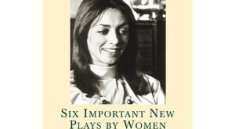February 7, 2023
A CALL FOR PAPERS
Critical Stages / Scènes critiques
WebJournal of the International Association of Theatre Critics
www.criticalstages.org
CRITICAL STAGES/SCÈNES CRITIQUES
INVITES SUBMISSIONS FOR CONSIDERATION
CS/SC announces its Issue No. 4 with a call for critical articles,
essays, interviews and reviews that contribute to cutting-edge,
international discourse on the theatre.
CS/SC aims to document, celebrate, challenge and foster internationally the discipline and the art of theatre criticism, with theatre broadly defined; to employ theatre criticism as a springboard for opening communication between theatre practitioners, theoreticians and the general public; to create “critical space” for the theatre critic to develop and thrive; to increase the general readership for theatre criticism by providing international readers with a source for information and dynamic discussion of themes and trends in contemporary international theatre.
NOTES ON SUBMISSIONS: ENGLISH AND FRENCH
Please submit your article as an e-mail attachment, double-spaced in MS Word. Articles will typically range from 1500 to 3500 words (10,000 to 20,000 characters including spaces); please check with the Section Editor if the length is not specified below.
We publish articles (not interviews or reviews) with an abstract, not longer than 200 words, in the alternate language. Where possible, please send your article in English with an abstract in French; if this is not possible, send your abstract in English and we will have it translated. Likewise, if possible, please send your article in French with an abstract in English; if this is not possible, send the abstract in French and we will have it translated.
See more Submission Guidelines at
<http://www.criticalstages.org/criticalstages3/entry/Submission-Guidelines>.
(Paste the address in your browser if the link does not work.)
TIMELINE FOR ISSUE NO. 4, 2011
Proposal Period: Now Open
Full Draft Submission Deadline: April 30
Writer Notification Following Readers’ Reviews: the second week of May
Writer Revisions and Formatting: the third week of May
Publication: first or second week of June
JOURNAL SECTIONS
Please contact directly the editor of the section your proposal relates to
Performance Reviews welcomes critical appraisals of important,
controversial, bizarre or simply good performances. The section hopes
to report from as many different countries, cultures and languages as
possible. The submissions must not exceed 1300 words and must be
accompanied by photographs of the performance.
Section Editor: Matti Linnavuori matti.linnavuori@welho.org
Essays
An essay for this section should offer a critical view on its topic.
An essay might give an overview of an artist’s work; we recently
printed two “in memoriam” pieces, but an essay might also celebrate a
living artist. Alternatively, it could take a historical or analytical
approach to a theatre venue, a theme—a recent theme was “painful
memories,” for example—or a special questioning, like our previous
essays regarding cultural identity and immigrant communities.
Section Editor: Maria Helena Serodio m.h.serodio@netcabo.pt
Conference Papers
International theatre symposia and seminars play a vital role in the
discussion of live drama throughout the world. The IATC is proud to
play its part in this important area of critical work. The “Conference
Papers” section will seek to offer an international platform for many
of the most interesting and provocative papers presented in these
public arenas.
Section Editor: Mark Brown mark.brown@strath.ac.uk
Special Topics
Special Topics will invite three or four authors each to contribute an
article or statement on current issues surrounding aesthetic or
thematic approaches to theatre; regional or global theatre arts
policies; or other interesting phenomena of social significance to the
contemporary theatre. The editorial board may also consider
unsolicited pieces. Each article will be more or less 15,000
characters (2500-3000 words).
Please note: The Special Topic for the coming issue will be
“Censorship in Disguise.” Please see An open letter on the oppression
of international artists (22 January, 2011) at
http://www.aict-iatc.org/aict-5.html.
Section Editor: Yun-Cheol Kim yunckim911@yahoo.com
Interviews
Interviews are intended to compare and contrast the various views of
significant theatre artists around the world. To this end, the section
editor will provide interviewers with four previously formulated
questions to pose. Interviewers are encouraged to ask follow-up
questions to further illuminate or deepen the conversation. All
articles are in a question-and-answer format, preceded by a critical
introduction describing (not listing) the artist’s contributions or
offering an explanation of why this person deserves recognition in an
international journal. Submissions must include interviewee portrait
and photographs of performances discussed in the interview.
Section Editor: Randy Gener rndygener@aol.com
Book Reviews
Book Reviews will seek to review for each issue of CS/SC a selection
of recently-published books (generally not older than 24 months) that
are considered to be of national and/or international significance for
theatre workers generally and theatre critics and scholars in
particular. Each issue should have a lead review of a major book that
has been published in either English or French and should have an
additional three to five reviews of books published across a range of
languages (with particular emphasis on—though certainly not limited
to—new books in German and Spanish). Reviews of important books in
other languages will normally be published in either English or
French.
Section Editor: Don Rubin drubin@yorku.ca
Critics on Criticism
Critics on Criticism invites 1) in-depth profiles of, and interviews
with, well-known senior critics: their careers and work, relationships
to theatre audiences, conflicts and dilemmas, teaching experience,
work in other theatre fields and art forms; and 2) reflections,
interviews or surveys on the teaching of criticism; the methodologies,
theories and practices of criticism; comparison of courses given in
different countries; theatre criticism’s relationship to other art
disciplines; practical and theoretical dialogue between critics,
scholars and others. Every submission should include basic information
on the critic, including major publications, photograph, etc.
Section Editor: Andrea Tompa tompa.andrea@gmail.com
THE CRITICAL STAGES/SCÈNES CRITIQUES EDITORS
IATC President and Editor-in-Chief
Yun-Cheol Kim yunckim911@yahoo.com, Korea
Co-Editors
Lissa Tyler Renaud (English) ltrenaud@gmail.com, U.S.
Michel Vaïs (French) vais@ca.inter.net, Canada/Quebec
Contributing Editor
Patrice Pavis patricepavis@hotmail.com, France
Editorial Board Members
Mark Brown mark.brown@strath.ac.uk, U.K.
Randy Gener rndygener@aol.com, U.S.
Hervé Guay rvguay@mlink.net, Canada/Quebec
Matti Linnavuori matti.linnavuori@welho.org, Finland
Tomasz Milkowski tomasz.milkowski@gmail.com, Poland
Manabu Noda noda@kisc.meiji.ac.jp, Japan
Rodolfo Obregón pasofranco@att.net.mx, Mexico
Ludmila Patlanjoglu lpatlanjoglu@yahoo.com, Romania
Don Rubin drubin@yorku.ca, Canada
Maria Helena Serôdio m.h.serodio@netcabo.pt, Portugal
Maria Shevtsova m.shevtsova@gold.ac.uk, U.K.
Halima Tahan revista@teatroalsur.com.ar, Argentina
Andrea Tompa tompa.andrea@gmail.com, Hungary
Webmaster
Myoung-Jae “Andrew” Yim yimmj@dnacomms.com, Korea
Assistant-to-the-Webmaster
Yu-Jin Kim yjin7111@dnacomms.com, Korea
== == == == ==
FRANÇAIS
APPEL DE TEXTES
Critical Stages / Scènes critiques
RevueWeb de l’Association internationale des critiques de théâtre
www.criticalstages.org
CRITICAL STAGES/SCÈNES CRITIQUES
LANCE UN APPEL À CONTRIBUTION
CS/SC lance, pour son numéro 4, un appel d’articles critiques,
d’essais, d’entrevues et de comptes rendus qui contribueront à une
réflexion avancée sur le théâtre, sur le plan international.
CS/SC vise à documenter, célébrer, contester et promouvoir sur le plan
international la discipline et l’art de la critique de théâtre, le mot
théâtre étant entendu au sens large ; à utiliser la critique de
théâtre comme tremplin pour engager la communication avec les
praticiens du théâtre, les théoriciens et le public en général ; à
créer un « espace critique » permettant au critique de se développer
et de s’épanouir ; à accroître le lectorat de la critique en offrant
partout dans le monde une source d’information et une réflexion
dynamique sur les thèmes et les tendances propres au théâtre
contemporain sur le plan international.
NOTES SUR LES PROPOSITIONS : EN ANGLAIS ET EN FRANÇAIS
Prière de soumettre votre article en document joint à un courriel, à
double interligne, en MS Word. Les articles pourront comporter entre 1
500 et 3 500 mots (10 000 à 20 000 caractères incluant les espaces) ;
prière de vérifier avec le chef de section si la longueur n’est pas
précisée ci-dessous.
Nous publions les articles (sauf les entretiens et les critiques) avec un résumé, de pas plus de 200 mots, dans l’autre langue. Si possible, envoyer votre article en anglais avec un résumé en français ; si c’est impossible, envoyer votre résumé en anglais et nous le ferons traduire. De même, si possible, veuillez envoyer votre article en français accompagné d’un résumé en anglais. Si c’est impossible, envoyer le résumé en français et nous le ferons traduire.
Plus de détails sur la page suivante :
http://www.criticalstages.org/criticalstages3/entry/Submission-Guidelines
(Si le lien ne s’ouvre pas, veuiller coller et copier l’adresse sur votre fureteur.)
DATES À RETENIR POUR LE NO 4, EN 2011
Période de propositions : En cours
Date de tombée des articles complets : le 30 avril
Réponse à la suite de l’évaluation par des pairs : la deuxième semaine de mai
Révision et formatage par l’auteur : la troisième semaine de mai
Publication : première ou deuxième semaine de juin
SECTIONS DE LA REVUE
Prière de contacter directement le chef de la section concernée par
votre proposition.
Analyses de spectacles
Cette section fait place à des commentaires critiques sur des
spectacles importants, controversés, bizarres ou simplement bons. On
espère accueillir des articles du plus grand nombre possible de pays,
de cultures et de langues. Les propositions ne peuvent pas dépasser 1
300 mots et doivent être accompagnées de photos du spectacle.
Chef de section : Matti Linnavuori matti.linnavuori@welho.org
Essais
Il faut ici présenter un regard critique sur un sujet. Il peut s’agir
d’une vue d’ensemble sur l’œuvre d’un artiste ; à ce titre, nous avons
déjà publié deux hommages « In memoriam », mais il est aussi possible
de célébrer un artiste vivant. Par ailleurs, l’essai peut consister en
une étude historique ou analytique sur un lieu théâtral, un thème –
par exemple, récemment, nous avons eu comme thème « mémoires
douloureuses » –, ou une analyse particulière, comme ce fut le cas
pour nos essais sur l’identité culturelle et les communautés
immigrantes.
Chef de section : Maria Helena Serôdio m.h.serodio@netcabo.pt
Exposés de colloques
Les colloques et symposiums internationaux sur le théâtre jouent un
rôle de premier plan dans les réflexions sur le théâtre vivant dans le
monde et l’AICT est heureuse de s’associer à cet aspect important du
travail critique. La section « Exposés de colloques » cherchera donc à
offrir une tribune internationale à plusieurs communications parmi les
plus intéressantes et provocantes qui auront été présentées en public
lors de telles activités.
Chef de section : Mark Brown mark.brown@strath.ac.uk
Sujets spéciaux
Cette section accueillera trois ou quatre auteurs qui écriront chacun
un article ou une prise de position sur des sujets courants concernant
des démarches théâtrales sur les plans esthétique ou thématique ; sur
des politiques théâtrales régionales ou mondiales ; ou sur d’autres
phénomènes intéressants et socialement pertinents dans le théâtre
contemporain. Le comité éditorial pourra aussi considérer des articles
non sollicités. Chaque article devra comporter environ 15 000
caractères, espaces comprises (2500 à 3000 mots).
Note : Le Sujet spécial pour le prochain numéro sera « La censure
déguisée ». Prière de lire la Lettre ouverte sur l’oppression
d’artistes dans le monde (22 janvier 2011) à
http://www.aict-iatc.org/aict-1fr.html
Chef de section : Yun-Cheol Kim yunckim911@yahoo.com
Entrevues
Il s’agira ici de comparer et d’opposer les points de vue d’importants
artistes du théâtre sur le plan mondial. À cette fin, le chef de
section fournira aux intervieweurs quatre questions déjà formulées à
poser à leur interlocuteur, auxquelles ils seront invités à ajouter
des questions complémentaires pour éclairer ou approfondir la
conversation. Tous les articles seront sous forme de
questions-réponses et précédés d’une introduction critique décrivant
(sans énumération) l’apport de l’artiste ou expliquant pourquoi cette
personne mérite une reconnaissance dans une revue internationale. Les
propositions doivent inclure un portrait de la personne interviewée et
des photos de spectacles dont il est question dans l’entrevue.
Chef de section : Randy Gener rndygener@aol.com
Comptes rendus de lecture
On tentera ici de rendre compte, dans chaque numéro de CS/SC, de
livres récemment parus (depuis moins de 24 mois) et qui sont
considérés d’intérêt national ou international pour les gens de
théâtre en général, et les critiques et universitaires en particulier.
Chaque numéro devra comporter le compte rendu d’un ouvrage important
publié en anglais ou en français et trois à cinq autres comptes rendus
de livres parus dans diverses langues (en insistant particulièrement –
mais bien sûr sans s’y limiter – sur les nouvelles parutions en
allemand et en espagnol). Les comptes rendus d’ouvrages importants
dans d’autres langues seront normalement publiés soit en anglais soit
en français.
Chef de section : Don Rubin drubin@yorku.ca
Critiques sur la critique
Cela fera place 1) à des profils substantiels de critiques de grande
expérience ou à des entrevues avec eux : sur leur carrière et leur
parcours, leurs relations avec les publics de théâtre, leurs conflits
et dilemmes, leur expérience de l’enseignement, leur travail dans
d’autres domaines du théâtre ou formes d’art ; et 2) à des réflexions,
entrevues ou enquêtes sur l’enseignement de la critique ; aux
méthodologies, théories et pratiques de la critique ; à des
comparaisons entre des cours dispensés dans divers pays ; aux
relations entre la critique de théâtre et d’autres disciplines
artistiques ; à un dialogue pratique et théorique entre critiques,
universitaires et autres. Chaque proposition devrait comporter une
information de base sur le critique, notamment ses principales
publications, une photo, etc.
Chef de section : Andrea Tompa tompa.andrea@gmail.com
RESPONSABLES DE CRITICAL STAGES/SCÈNES CRITIQUES
Président de l’AICT et rédacteur en chef
Yun-Cheol Kim yunckim911@yahoo.com, Corée
Adjoints au rédacteur en chef
Lissa Tyler Renaud (anglais) ltrenaud@gmail.com, États-Unis
Michel Vaïs (français) vais@ca.inter.net, Canada/Québec
Contribution spéciale
Patrice Pavis patricepavis@hotmail.com, France
Membres du comité éditorial
Mark Brown mark.brown@strath.ac.uk, Royaume Uni
Randy Gener rndygener@aol.com, États-Unis
Hervé Guay rvguay@mlink.net, Canada/Québec
Matti Linnavuori matti.linnavuori@welho.org, Finlande
Tomasz Milkowski tomasz.milkowski@gmail.com, Pologne
Manabu Noda noda@kisc.meiji.ac.jp, Japon
Rodolfo Obregón pasofranco@att.net.mx, Mexique
Ludmila Patlanjoglu lpatlanjoglu@yahoo.com, Roumanie
Don Rubin drubin@yorku.ca, Canada
Maria Helena Serôdio m.h.serodio@netcabo.pt, Portugal
Maria Shevtsova m.shevtsova@gold.ac.uk, Royaume Uni
Halima Tahan revista@teatroalsur.com.ar, Argentine
Andrea Tompa tompa.andrea@gmail.com, Hongrie
Webmaître
Myoung Jae «Andrew» Yim yimmj@dnacomms.com, Corée
Adjoint au webmaître : Yu-Jin Kim yjin7111@dnacomms.com, Corée
=




